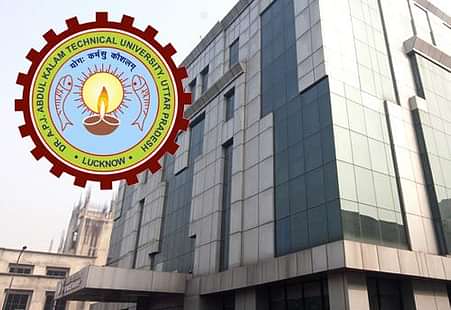
Rules and Regulations- For Undergraduate Course (B. Tech. /B. Pharmacy/BHMCT/BFAD)
On Choice Based Credit System (Effective from the Session: 2016-17)
The choice based credit system provides flexibility in designing curriculum and assigning credits based on the course content and hour of teaching. The choice based credit system gives an opportunity for the students to choose courses from the prescribed courses comprising core,
elective and open elective courses . It provides a cafeteria type approach in which the students can take courses of their choice, learn at their own pace, adopt an interdisciplinary approach to learning and undergo additional courses and acquired more than the required credits.
The courses shall be evaluated on the grading system. It is considered to be better than the conventional marks system. It is necessary to introduce the grading system to make the uniformity among all technical institutions of India. This will benefit the students of the institute to move across institutions within India, to begin with, and across countries. The uniform grading system will also enable potential employers in assessing the performance of the candidates. In order to bring uniformity in evaluation system and computation of the Cumulative Grade Point Average
(CGPA) based on students performance in examinations, the AICTE has formulated the guidelines to be followed.
Definitions of Key Words:
1. University: Dr. APJ Abdul Kalam Technological University, Lucknow (APJAKTU).
2. Academic Year: Two consecutive (one odd + one even) semesters constitute one academic year.
3. Semester: Each semester will consist of 15-18 weeks of academic work equivalent to 90
actual teaching days. The odd semester may be scheduled from July to December and even semester from January to June.
4. Choice Based Credit System (CBCS): The CBCS provides choice for students to select from the prescribed courses (core, elective and Foundation Courses).
5. Credit Based Semester System (CBSS): Under the CBSS, the requirement for awarding a degree or certificate is prescribed in terms of a number of credits to be earned by the students.
6. Programme: An educational programme leading to an award of a Degree.
7. Course: Usually referred to, as papers is a component of a programme. All courses need not carry the same weightage. The courses should define learning objectives and learning outcomes. A course may be designed to comprise lectures/ tutorials/laboratory work/ field work/ outreach activities/ project work/ vocational training/viva/ seminars/ term papers/assignments/ presentations/ self-study etc. or a combination of some of these.
8. Branch: Specialization or discipline of B.E./B.Tech. Degree Programme, like Civil Engineering, Agriculture Engineering, etc.
9.Letter Grade: It is an index of the performance of students in a said course. Grades are denoted by letters A, B, C, D, E and F.
10. Grade Point: It is a numerical weightage allotted to each letter grade on a 10-point scale.
11. Credit: A unit by which the course work is measured. It determines the number of hours of instructions required per week. One credit is equivalent to one hour of teaching (lecture or tutorial) or two hours of practical work/field work per week.
12. Credit Point: It is the product of grade point and a number of credits for a course.
13. Semester Grade Point Average (SGPA): It is a measure of academic performance of student/s in a semester. It is the ratio of total credit points secured by a student in various courses registered in a semester and the total course credits taken during that semester. It shall be expressed up to two decimal places.
14. Cumulative Grade Point Average (CGPA): It is a measure of overall cumulative performance of a student over all semesters. The CGPA is the ratio of total credit points earned by a student in various courses in all semesters and the sum of the total credits of all courses in all the semesters. It is expressed up to two decimal places.
15. First Attempt: If a student has completed all formalities and become eligible to attend the examinations and has attended at least one subject of passing, such attempt (first sitting) shall be considered as the first attempt.
16. Transcript or Grade Card or Certificate: Based on the grades earned, a grade sheet/certificate shall be issued to all the registered students at the end of every academic year. The grade sheet/certificate will display the course details (code, title, number of credits, grade secured) along with SGPA of both semesters and CGPA earned till that academic year. The CBCS provides choice for students to select from the prescribed courses. Sequencing Plan for the B.Tech. Degree Curriculum
Semesters Course Coverage
I II Applied Science Courses and Common Engineering Courses for all Branches; Mandatory Courses
III-IV Applied Sciences Courses ( Common for all Branches) and Engineering
Core Courses: Core/Elective
V-VI Humanities and Mandatory Courses, Engineering Core & Electives
Courses; Other Electives; Branch-wise Orientation
VII-VIII Engineering Core & Electives Courses; Open Electives; Branch-wise
Orientation Electives/Elective; Other Electives, Internship, Project work
















